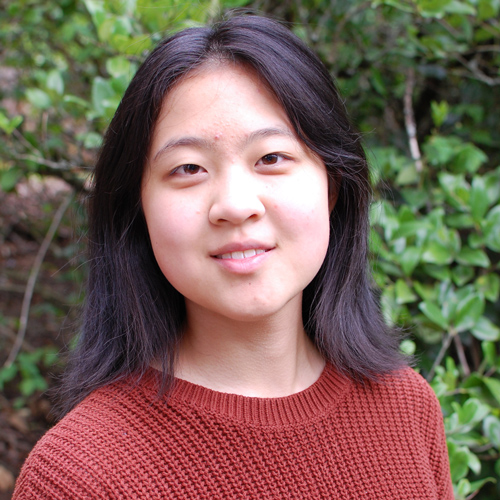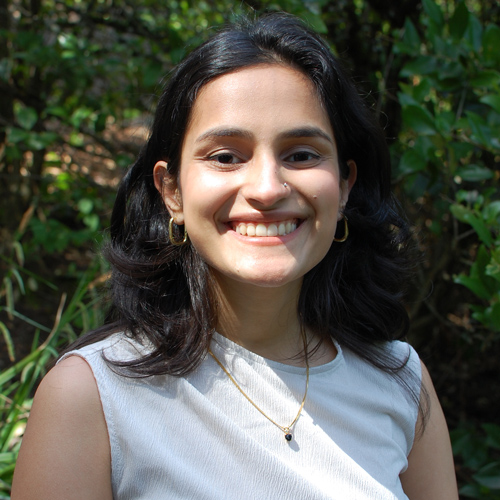Each year, the UW Engineering dean recognizes two exceptional students. Students must meet specific eligibility requirements and are selected from among those nominated by department chairs and reviewed by a selection committee.
2025 Dean's Medal Nominees
Academic Excellence
Selection criteria for the Academic Excellence award include grades, rigor and distribution of courses, and excellence in research.
- Jasper Geldenbott, Aeronautics & Astronautics
- Beau Lonnquist, Bioengineering
- Grace Zhang, Civil Engineering
- Eujean Lee, Computer Science & Engineering
- Michael Tsien, Electrical & Computer Engineering
- Mai Li Jorgensen, Human Centered Design & Engineering
- Maria Leonova, Industrial & Systems Engineering
- Octavia Prosser, Material Science & Engineering
Leadership and Engagement
Selection criteria for the Leadership and Engagement award include extracurricular leadership, impact to the community, and commitment to engineering for the public good.
- Grace Pardini, Aeronautics & Astronautics
- Marianne Esnaurrizar, Bioengineering
- Vania Moreno-Colin, Civil Engineering
- David Mok, Computer Science & Engineering
- Emma Owen, Electrical & Computer Engineering
- Maria Leonova, Industrial & Systems Engineering
- Zoe Blumenkranz, Material Science & Engineering
2025 Dean's Medalists

Annabella Li
Chemical Engineering
Academic Excellence
Throughout her time at the University of Washington, Annabella Li has conducted interdisciplinary research at the intersection of chemical engineering, biochemistry, and materials science, while also supporting the STEM community through outreach and mentorship.
Annabella works with Professor Cole DeForest in the Department of Chemical Engineering, with research focused on engineering protein-based biomaterials that respond to external stimuli. Her work contributes to the development of logic-based control systems in synthetic materials—advancing the field of biomaterials toward more life-like, programmable behavior. She shared her findings at the UW Undergraduate Research Symposium and was recognized nationally with the Barry M. Goldwater Scholarship.
Outside of the lab, Annabella is committed to making science and engineering more accessible. She serves as an Engineering Design Coach in the Emerging Leaders in Engineering (ELE) program, where she teaches hands-on design workshops to first-year engineering students. As outreach chair of the student organization Free Radicals, she helped launch an initiative for off-campus outreach to local elementary schools, expanding the group’s community efforts.
After graduation, Annabella plans to pursue a Ph.D. at the California Institute of Technology, where she will continue exploring synthetic biology and biomaterials research. She hopes to contribute to the development of programmable biological systems for applications in medicine, the environment, and beyond, while continuing to mentor and inspire future engineers along the way.

Mishti Dhawan
Human Centered Design & Engineering
Leadership and Engagement
Mishti Dhawan is a human-centered design researcher committed to advancing accessibility, inclusion and community well-being through thoughtful, equity-driven design. At the University of Washington, she has pursued this mission across research, leadership and public service.
Through her work with HuskyADAPT, Mishti helped design accessible play technologies for children with disabilities and led workshops as the organization’s design chair, mentoring peers in inclusive design practices. She also served as president of the Human Centered Design & Engineering (HCDE) Undergraduate Student Association, where she advocated for student needs and cultivated a stronger, more connected department community.
Mishti’s academic and professional experiences reflect a commitment to design that centers lived experience. As a Transit Safety Intern with the Seattle Department of Transportation, she develops strategies to improve public transit experiences for vulnerable riders using both qualitative and quantitative methods. Her work is grounded in a belief that public systems should be not only functional, but also compassionate and inclusive. Her interdisciplinary perspective has been shaped by her coursework in the Honors Program and a study abroad experience in London.
After graduation, Mishti will continue her work with SDOT, helping translate transit safety research into actionable design and policy recommendations. She plans to pursue a career at the intersection of design, policy, and public service—focused on making everyday experiences safer, more accessible, and more human.
View past dean's medalists